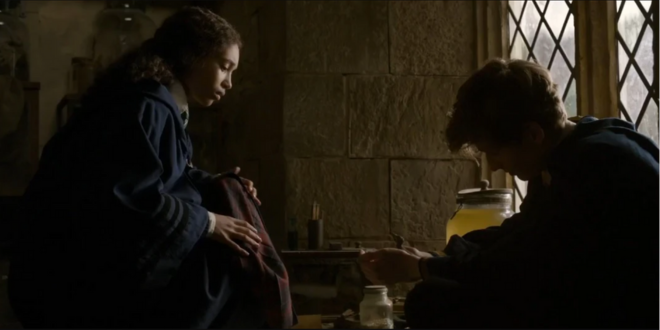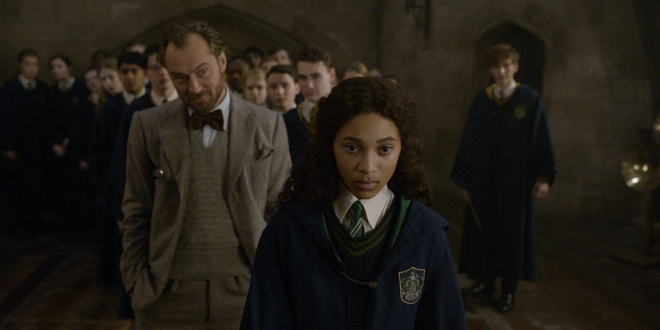How Leta Lestrange Validated My Neurodivergent Childhood (and Adulthood)
The Wizarding World universe has been a beacon of hope and comfort for many fans, myself included. As someone who identifies as neurodivergent, a person whose brain learns and functions differently from what society considers typical, many characters have provided me with a clearer sense of self. One character that I relate to the most is Leta Lestrange from Fantastic Beasts: The Crimes of Grindelwald.
We are officially introduced to Leta Lestrange in the Fantastic Beasts’ second movie, The Crimes of Grindelwald. As part of the Lestrange family, Leta is endlessly bullied and isolated during her time at Hogwarts for her infamous surname. Students and teachers alike assume her to be evil, and deny her the chance to prove them otherwise. Add this to her social awkwardness and Leta starts to believe that she is, indeed, bad. We see this in adulthood when she exclaims to Newt Scamander, “You never met a monster you couldn’t love.”
The first time I felt like an outcast was also during my middle school years. I had a hard time genuinely connecting with others and often came off socially awkward. My unusual bluntness and questioning left my teachers annoyed and literally rolling their eyes. I would get in trouble for trivial things and be wrongly accused of cheating on well-written essays. What started out as friends making fun of my different interests and mannerisms behind my back turned into being publicly shunned, unfriended, and called weird. Similar to Leta, I spent the end of middle school feeling lonely and misunderstood.

A source of connection in Leta Lestrange’s life was her friendship with Newt Scamander. Both outsiders and introverts, the two took solace in each other at Hogwarts. Newt, a Hufflepuff, didn’t view Leta as a Slytherin or a Lestrange, but rather as a friend that shared a similar love for magical creatures. I believe this is why Leta still has a fondness for Newt even years later. Despite this friendship, she spends the rest of her school years withdrawn, distrusting others, and riddled with guilt. Her childhood experiences affected her outlook on the world as an adult, and understandably so.
Like myself, Leta is cautious and only trusts others once she has evidence that they are trustworthy. She takes extra measures to keep herself safe and feeling in control. Sometimes this includes masking, also known as when a neurodivergent person camouflages and hides their mannerisms or interests to appear more accepted in society. We see this when Leta takes a job at the Ministry of Magic and accepts Theseus Scamander’s marriage proposal. As viewers, we know that she does these things in order to fit in and not because it’s her true desire.

Leta Lestrange’s character is quiet, but not passive. She is complex, firm in her beliefs, and uses bravery to do what is right. We especially see this, and her heroism, at the end of Fantastic Beasts: The Crimes of Grindelwald. Despite everyone’s perception of her, Leta Lestrange shows us that you don’t have to be the loudest, happiest, or most outgoing person in a room to have courage and make a difference. When I’m masking or feel misunderstood, I remember Leta’s story and try to channel her courageous authenticity. Her choices reassure me that what makes you different from your peers can make you stronger, and that I don’t need to hide my neurodivergent traits from others.


